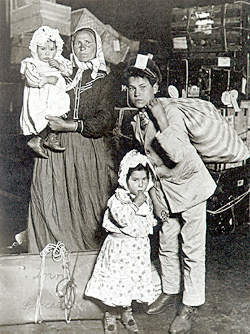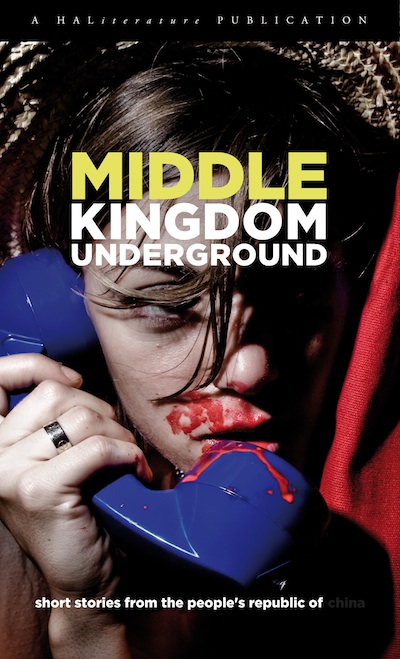Candy Stripe Bags
by Greg Baines
They are in lines stretching back north into the old station area. The first level still goes by its old name, Shanghai South Station. I’m on level three, Sky South, in charge of people coming in via airship. The lines are swelling, almost overwhelming. Comrade Zhen is jittery. He’s fought his way through walls of flesh to call more people into work.
I have processed hundreds of people over the last few days. I have seen some people with their whole lives on their backs, dangled precariously under their arms, lives downloaded onto memory chips. I see some whose faces are stained with tears, others who look relieved to be here.
Another small group of families have just squashed into our area, jamming even the doors. They look confused and tired and smell; a strange mix of bad breath, off food, foot odour and the smells of “the other” our noses aren’t tuned to.
I have always loved seeing the air ships sail in on the currents, silent and elegant, but now the sky is full of them. They cast immense cigar-shaped shadows over the city, almost eclipsing the sun. They are forced to dock quickly, clumsily, and then they are quickly untethered and left to drift up into the sky.
One man, a father, comes forward with a huge candy striped bag over his shoulder. A week ago this would have made me reflect on how lucky I am, my kids safe at home watching movies and networking with their friends. But I have seen too many now, they’re becoming just numbers.
I insert the usual chip into the fathers arm, and then his small child, scan them for infection. The father is, like all the others, tired and confused but in good health. I hand him a tablet so he can join the database. His hand stops over the surface of it. He looks up at me and says something that’s so thick and accented in his dialect I can’t understand him. I have no time to solve language puzzles. I have been on my feet for over nine hours. My feet ache and are swollen and pressing against my shoes. I grab a translator from my jacket and hold it to my ear and ask him to repeat. He says, “We are so hungry. Do you have food?” I am surprised, where does he think he is? The smell of food is everywhere. I say, the translator at my mouth now, “Of course. But you need to be part of the database first.” I wait for the annoying two second lag from the translator, hear my voice echo out changed, re-shaped. He nods, and his eyes go to the tablet again, but his fingers don’t move. People behind look agitated, start to get restless. Some abuse him, others press forward.
Zhen comes up at this stage, he puts his hand on my arm and says, “Comrade, your family must be worried. Have a break and call them, get some food.” I feel tiredness wash over me, I can hardly keep my eyes open now, but I say, “Just let me get through this family, then you can have a go at these.” Zhen looks tired, too; he was spat at earlier in the day by a teenager. Zhen says we treat them too kindly, we should let them stew in their own mess, a mess they made. But I don’t think he really feels this. Like all of us, he is near the edge of exhaustion. What are we if we don’t stretch out a hand to others when they are in trouble?
I turn to the father again. He still has not filed the data fields. He says something to me and shrugs and I sigh and roll my eyes and comrade Zhen says, “Can you hear it?” I wonder what the hell is talking about. I say, “Hear what? I need these fields-” Zhen smiles, says, “He’s using English.” I look at the father, startled. Why would he use English? Zhen says, “It’s so exotic isn’t it?” and I say, “The last thing I need is exotic.” Zhen yawns and wanders off to take a call. I did study English, of course, and now that I know what it is it’s as if my ears are looking for different markers and it does seem to make sense. I ask him, using my rusty English, “Are you tired to fill in fields? I help you.” He shuffles, drops the candy stripe bag to the floor. He says, “Thanks…” We start filling in data but I’m puzzled. I stop and ask, “Why didn’t you speak to me in Chinese just now?” He seems embarrassed, looks back at his family and says, “It’s not very good. I rely on my kids if I need to talk a lot, but they are in no mood to translate for me.” This man is a like a relic of the twenty-first century. “You really don’t speak Chinese?” He smiles. “We come from a remote area, the older generation still use our local language only.”
I fill in data fields, he becomes a statistic. I get to his area of origin, which will be the same as all the rest, “United States of America.” I hand the tablet to Zhen who has just put his phone away and come to replace me. I hesitate, turn, say to the father, “…things will be better here.” It sounds like a slogan, but I hope it’s real, I hope it comes true. Our eyes connect for a moment, but I can’t hold his eyes for too long, they scare me. He smiles, picks up his life in his candy striped bag, and shuffles on to fill his stomach. I call my kids, their voices are music.




Love it…little snapshot of a bigger mess that is looking more real.